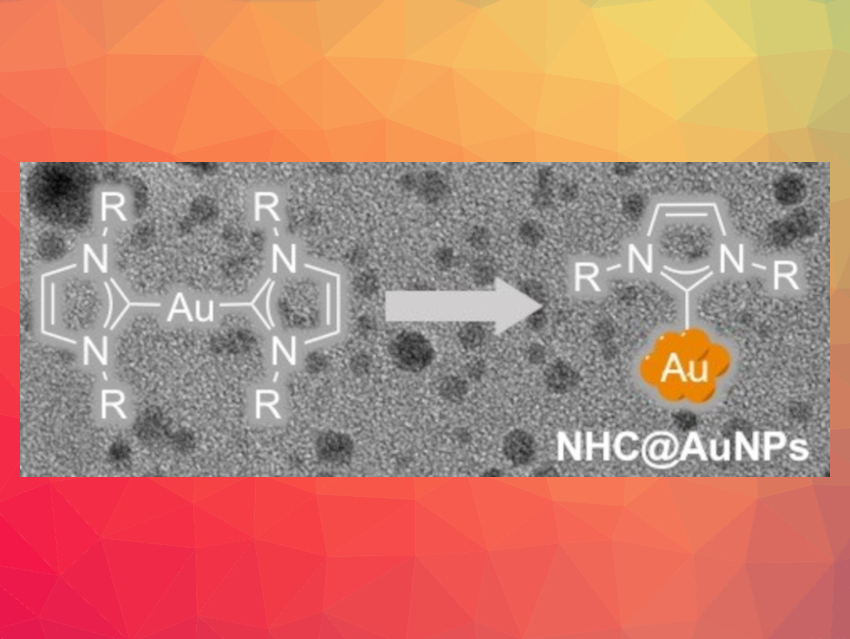N-heterocyclic carbenes (NHCs) can be useful alternatives to thiol ligands for stabilizing gold nanoparticles due to their strong bonds to metals and ease of functionalization. Despite these advantages, NHC-stabilized gold colloids (NHC@AuNPs) are still not well explored.
Angela Casini, Technical University of Munich, Garching, Germany, and colleagues have synthesized two types of water-soluble gold nanoparticles stabilized by hydrophilic mono- and bidentate NHC ligands, respectively, via a ‘bottom-up’ approach (simplified example pictured). The team first prepared sulfonated mono- and bidentate NHC ligands, which were used to prepare the respective Ag(I) bis-NHC complexes via reactions with [Au(SMe2)Cl]. Water-soluble NHC@AuNPs were then obtained via a direct reduction with sodium borohydride (NaBH4).
The prepared NHC@AuNPs were characterized, e.g., by transmission electron microscopy (TEM), which showed quasi-spherical NPs with sized of about 2.3–2.6 nm, as well as X-ray photoelectron spectroscopy (XPS), which showed different ratios of Au(I)/Au(0) for the two ligands. The NPs that were created using the bidentate NHC ligand contain a higher amount of Au(I).
The team found a high catalytic activity of the NHC@AuNPs in the reduction of nitrophenol substrates and resazurin in water. The photothermal efficiency was also evaluated, showing promising results for use in photothermal therapy (PTT) in human cancer cells. Overall, the researchers showed the potential of water-soluble NHC@AuNPs for applications in catalysis and medicine.
- Bottom‐up Synthesis of Water‐Soluble Gold Nanoparticles Stabilized by N‐heterocyclic Carbenes: From Structural Characterization to Applications,
Sophie Thomas, Wenjie Yang, David J. Morgan, Thomas Davies, Jiao Jiao Li, Roland Fischer, Jun Huang, Nikolaos Dimitratos, Angela Casini,
Chem. Eur. J. 2022.
https://doi.org/10.1002/chem.202201575




